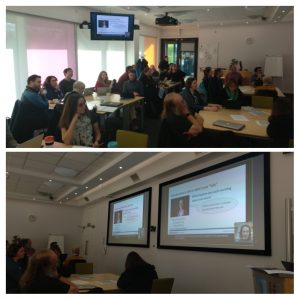openTEL and SeGA had the first Open & Inclusive Special Interest Group including presentations by Allison Posey, CAST and Chris Douce, STEM
Allison introduced in her presentation Universal Design for Learning (UDL) with a particular focus on Application for Distance Learning. It is essential to consider how to design to address the variability of learners in a distance learning setting. UDL offers a framework to proactively develop learning environments, including online programs, to meet the diverse needs of students.
Chris presentation introduced an accessibility perspective through his personal experience at the Open University, reflecting on the definition of accessibility, as a term that is used to refer to different ways in which education and educational materials can be made available for disabled students. The presentation moved from a high level (discussions about the aims and objectives of a module) towards low-level technical standards that are important to facilitate the use and consumption of module materials.
[embeddoc url=”https://www.open.ac.uk/blogs/opentel/wp-content/uploads/2019/02/Accessibility-workshop-Reflections-on-accessibility-Chris-Douce-2019-1.pdf” height=”50%” download=”none”]
After the presentations we had a one-hour participatory workshop where 5 tables with 24 participants discussed 4 questions:
- What are the main takeaway messages you’ve taken from the talks today?
- What do you think we already do well in the OU?
- What changes could we make, at a practice level that would enable us to do better?
- What support would we need to be able to make these changes?
Some of the conversations that emerged included:
- The empathic point of view of accessibility and disability we have at the Open University. The importance of embedding accessibility in an open plan and always give students choices but training and capacity to take them.
- The fact that in many cases students are using what was developed in a different way for different approaches; therefore, the fact that designing for disabled students helps to cover the rest of learners. Accessibility is in place giving students opportunities to succeed, raise awareness to put resources in place is the challenge.
- Finally, the knowledge acquired by the OU and the way it should be archived and shared at the University and with others.
